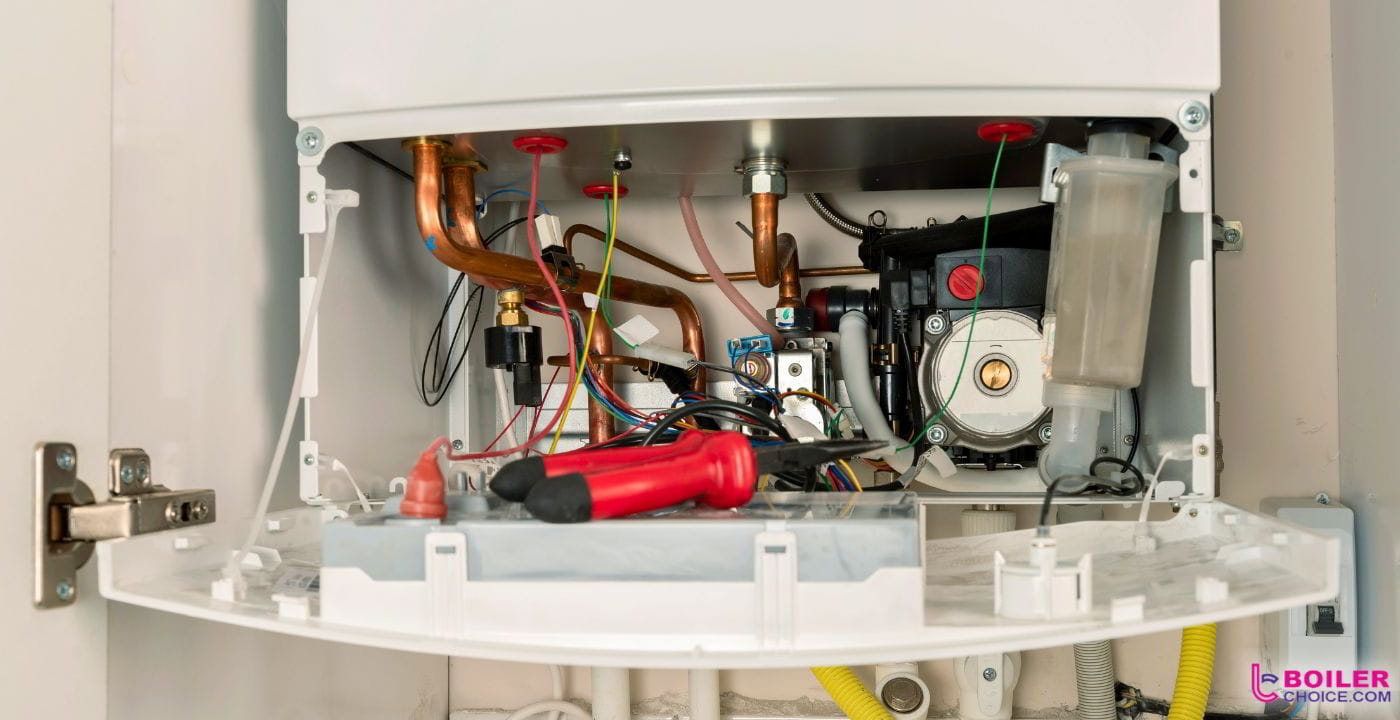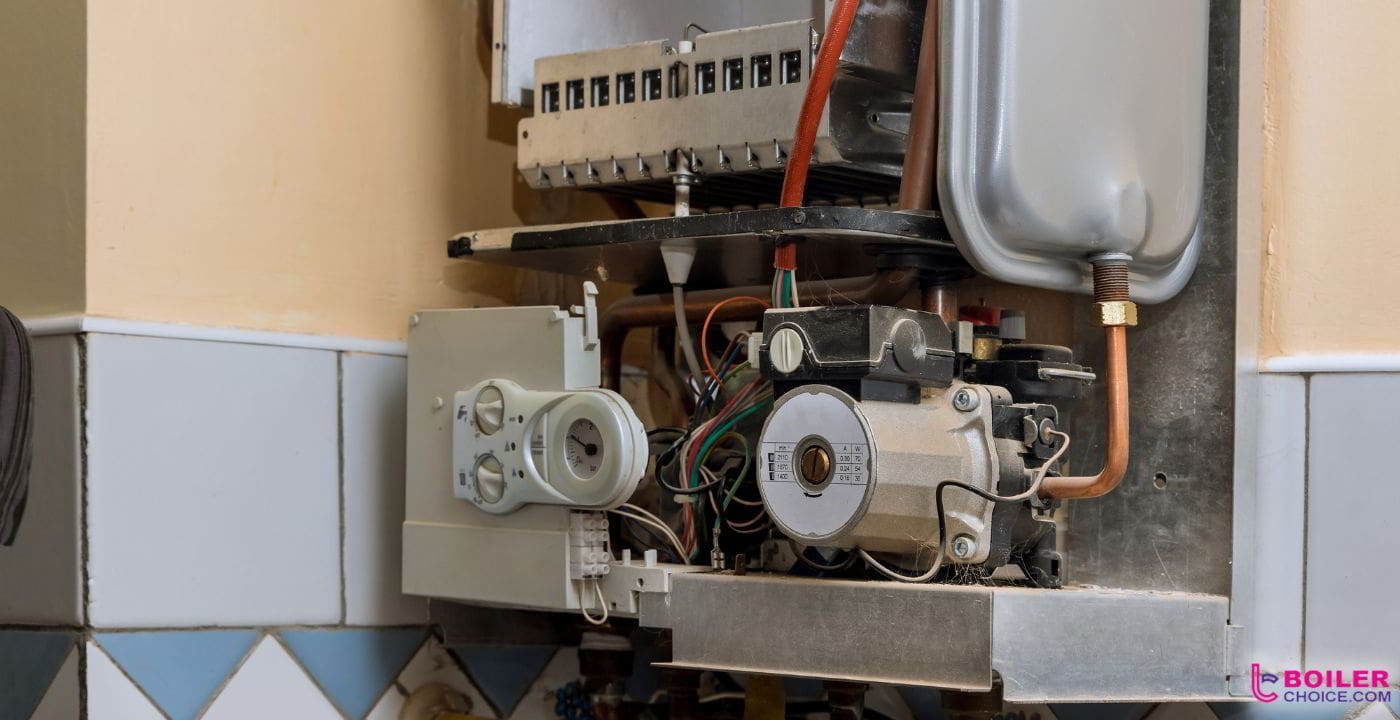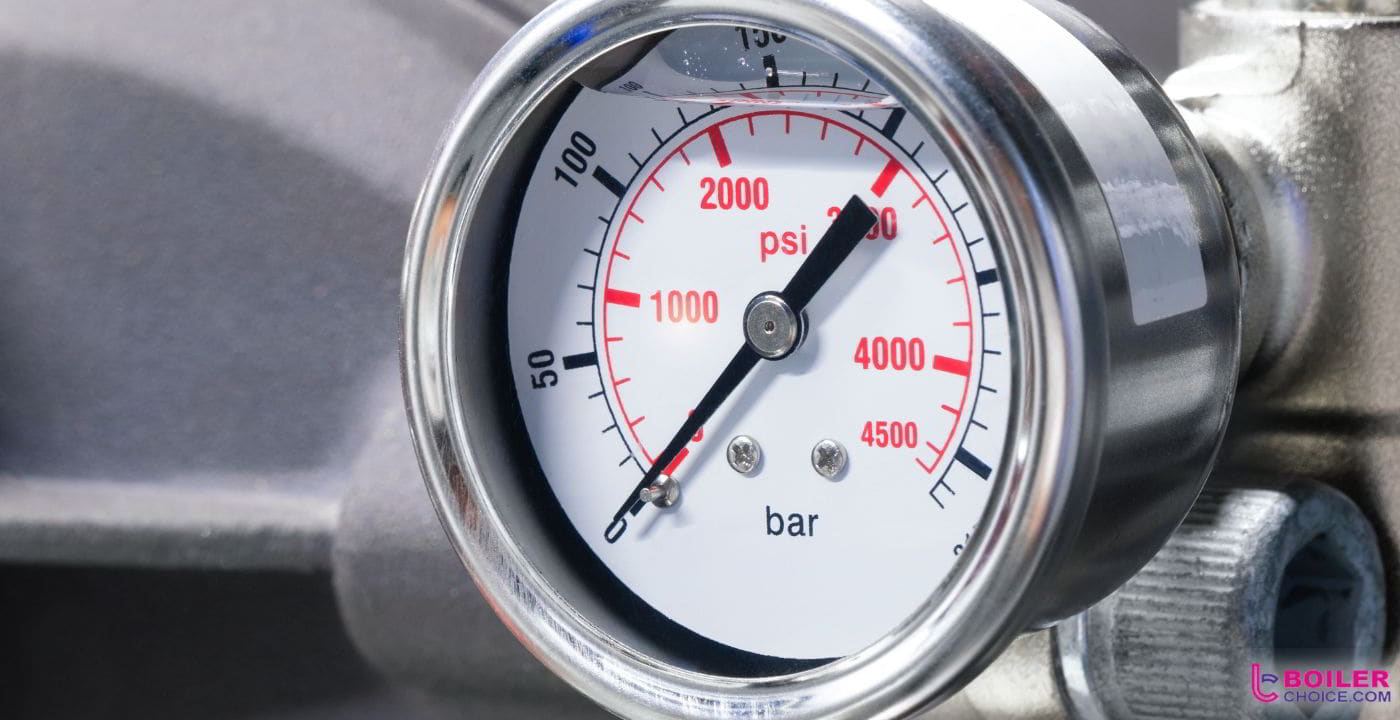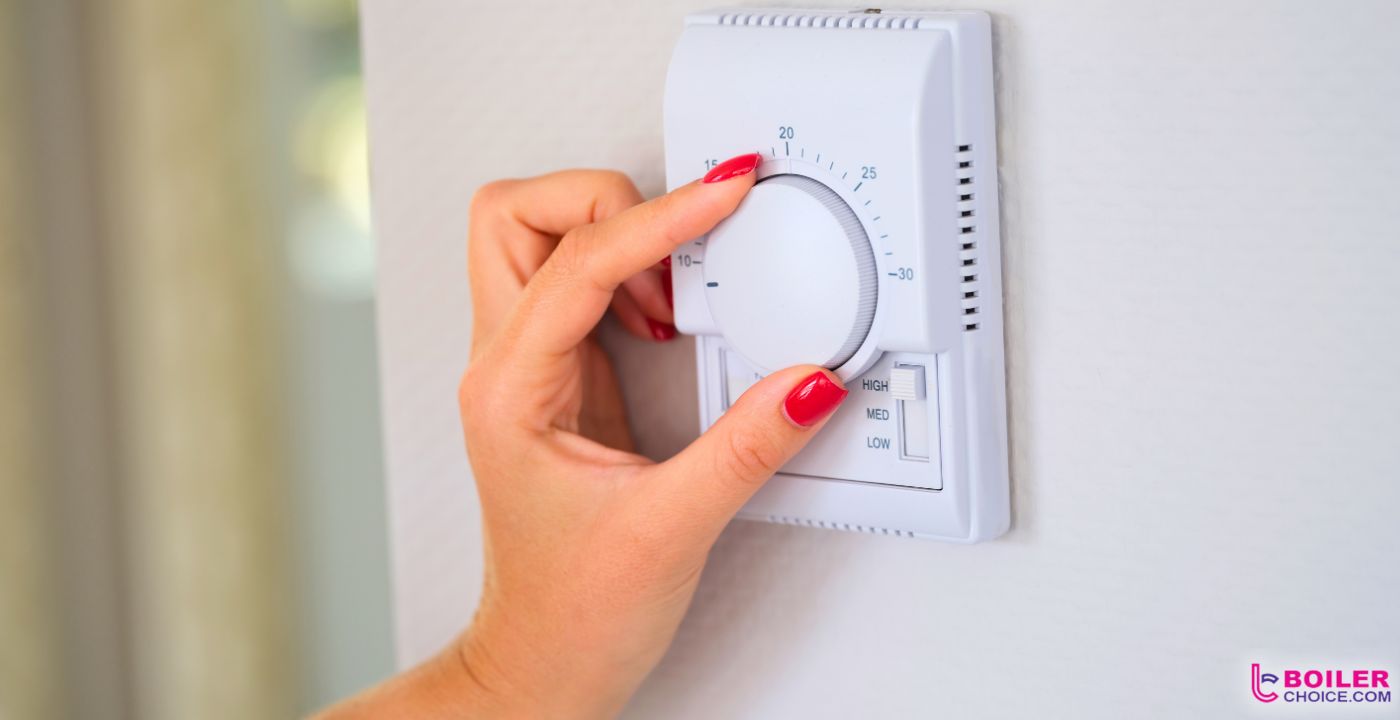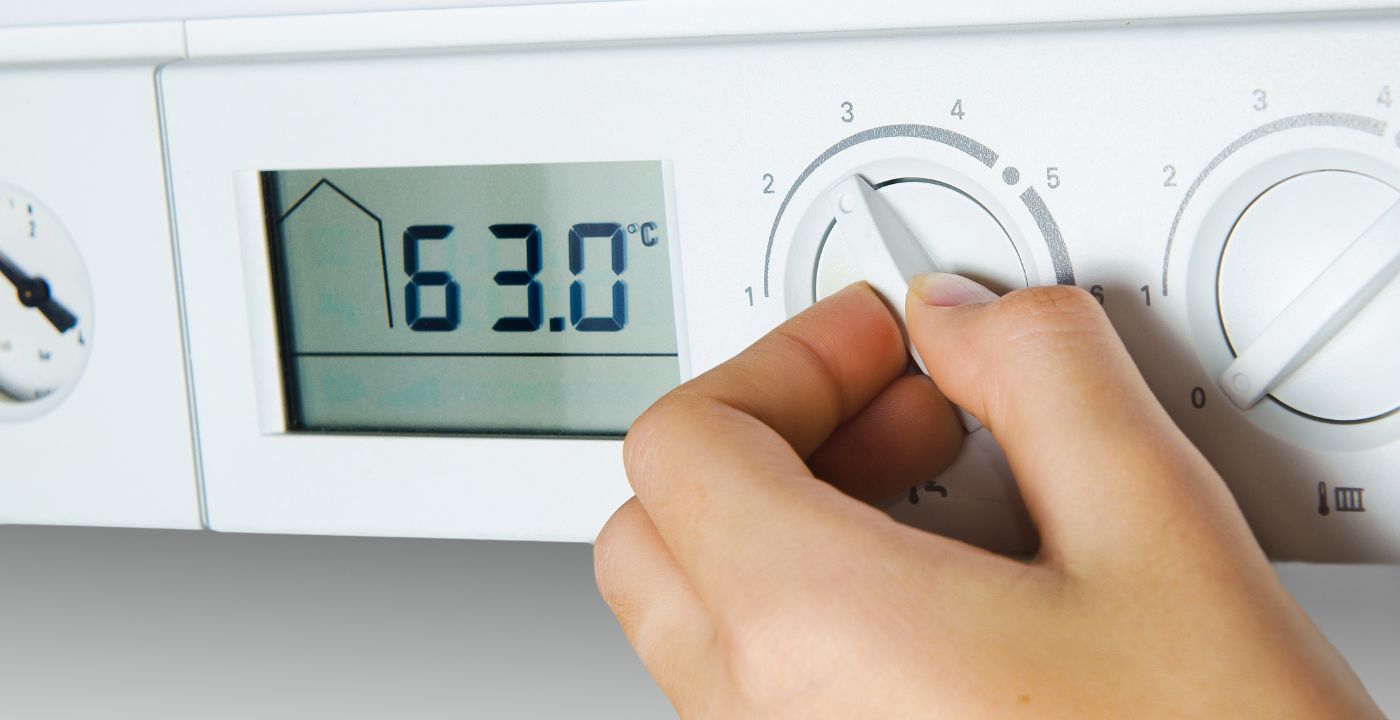
Key Takeaways
- Low boiler pressure can cause heating to turn off; monitor for dips below 1 bar.
- Undersized boilers can lead to fluctuating shower temperatures.
- Limescale, dirt, and rust buildup affect water flow and heat transfer.
- External condensate pipes can freeze in winter, causing boiler shutdowns.
- Regular maintenance, quality parts, and user education prevent hot water issues.
Causes of Combi Boiler Water Going Cold
Check the Pressure
The moment you notice your combi boiler hot water goes cold, one primary cause to inspect is the boiler pressure. When the pressure falls below 1 bar, your boiler may automatically turn off its heating functionality to guard itself from potential harm. Observing the pressure gauge on your boiler will instantly inform you if it’s dipped beneath this threshold.
Shower Going Hot and Cold
One common issue many homeowners notice is the shower going hot and cold combi boiler. This temperature inconsistency can be attributed to multiple factors. A significant one being an undersized boiler incapable of meeting your home’s demands, leading to the shower going cold after a few minutes.
Water Temperature Fluctuates
Another critical reason for the inconsistency in water temperature is when the combi boiler hot water temperature fluctuates. Causes range from faulty diverter valves to the blending of hot and cold water due to a malfunctioning mixer valve.
Sludge or Lime Buildup
In areas with hard water, limescale buildup within the boiler and its components is a common issue. Similarly, over time, dirt and rust can accumulate in the system, creating a thick sludge. These blockages can impede water flow and heat transfer, causing inconsistent temperatures or even a complete loss of hot water but a powerflush can solve the problem.
External Pipe Freezing
During frigid winter months, there’s a risk of your external condensate pipe freezing. This pipe carries condensed water vapour from the boiler to the outside drain. If it freezes, it can block the flow, forcing the boiler to shut down.
Thermostat Malfunctions
The thermostat is your boiler’s control centre, dictating when and how intensely to heat the water. If it’s malfunctioning or inaccurately calibrated, it may not signal the boiler to heat the water to the desired temperature, leading to unexpected cold spells.
Inadequate Flow Rate
Sometimes, the amount of water flowing through the boiler (flow rate) might not be sufficient for efficient heat transfer. Whilst some energy providers may advise If the flow rate is too low, the water might not get adequately heated, causing sudden cold bursts.
Summary of Causes for Combi Boiler Hot Water Going Cold
| Cause | Description |
|---|---|
| Check the Pressure | Boiler pressure below 1 bar might turn off the heating function. Monitor the pressure gauge to detect dips below this level. |
| Shower Going Hot and Cold with a Combi Boiler | This can result from an undersized boiler that can’t meet the home’s demands, leading to temperature inconsistencies in the shower. |
| Water Temperature Fluctuates | Faulty diverter valves or malfunctioning mixer valves can cause temperature inconsistencies. |
| Sludge or Lime Buildup | Hard water can lead to limescale build-up. Dirt and rust can also accumulate, forming sludge that affects water flow and heat transfer. |
| External Pipe Freezing | In cold weather, the external condensate pipe can freeze, blocking flow and causing the boiler to shut down. |
| Thermostat Malfunctions | A malfunctioning or miscalibrated thermostat might not signal the boiler to maintain the desired water temperature, leading to cold spells. |
| Inadequate Flow Rate | A low flow rate can impede efficient heat transfer, resulting in water not getting heated adequately and causing temperature drops. |
Indicators of Issues with Your Combi Boiler
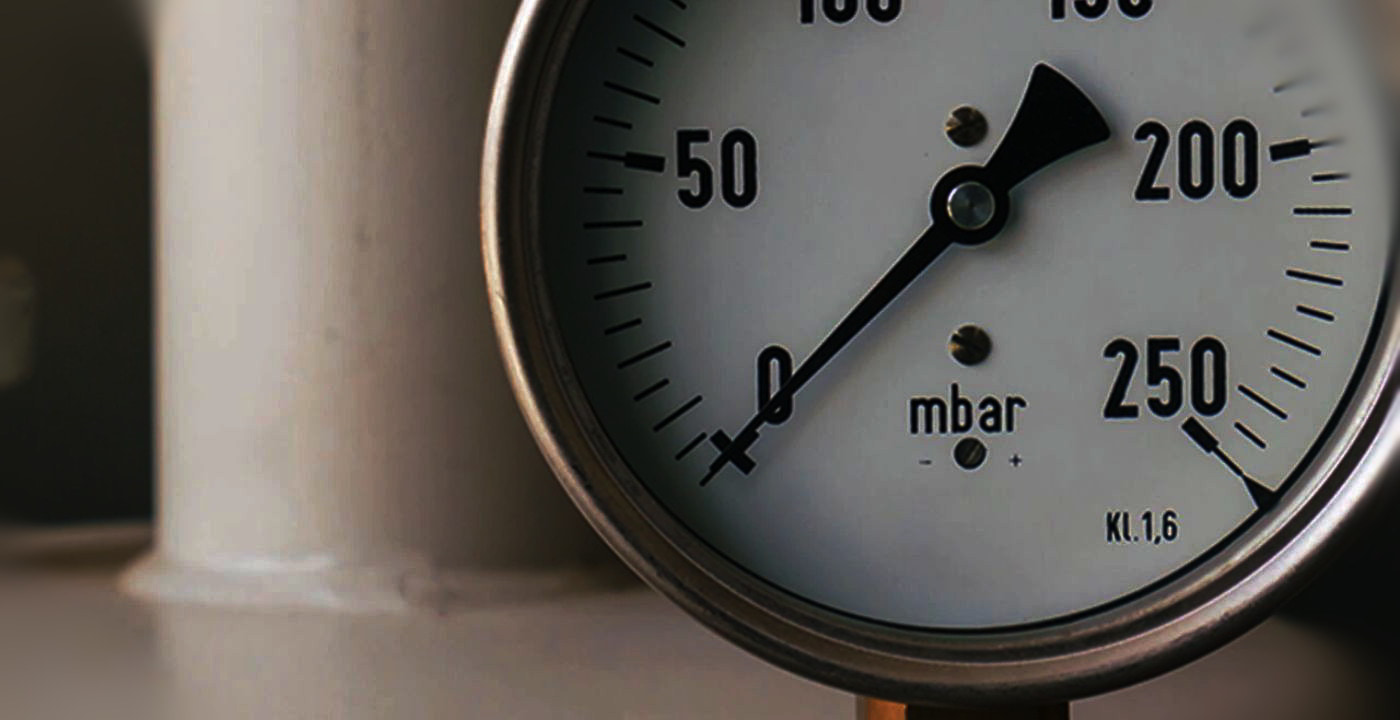
Identifying issues with your combi boiler can often be simplified by paying attention to certain signs and indicators. Understanding these indicators before problems occur, can help you prevent problems such as hot water that goes cold with a combi boiler, as well as enabling quick fixes and minimising damage.
These warning indicators include:
Strange Noises
If you hear unusual sounds, like a kettle-like boiling noise or banging, it’s often indicative of limescale buildup or trapped air within the system.
Rapid Pressure Drops
A swift decline in boiler pressure is a red flag, suggesting there might be a leak within the system. Regularly check the pressure gauge to monitor fluctuations.
Overheating
If your boiler shuts down shortly after starting, or if it feels excessively hot to the touch, it’s possible that the heat exchanger is blocked, restricting water flow.
Inconsistent Heating
Fluctuating water temperatures or radiators not heating up adequately might be due to faulty diverter or mixer valves, or a thermostat that isn’t calibrated correctly.
Fact: If the needle points to the left red section, the pressure is too low; if it points to the right red section, the pressure is too high. The green section represents the normal pressure range.
How to Fix Combi Boiler Hot Water Going Cold
Adjusting Boiler Pressure
Low boiler pressure is one of the frequent culprits when combi boiler hot water goes cold. When the pressure dips below the ideal range, it may impede the boiler’s ability to heat water efficiently.
Steps to to re-pressurise the boiler are as follows:
- Turn off the boiler and let it cool down for safety. It’s essential to avoid making adjustments when the boiler is hot.
- Locate the boiler’s built-in filling loop, typically a silver or grey flexible hose with small valves at both ends.
- Open the valves slowly, allowing cold water from the mains to enter the boiler. You’ll hear water flowing in.
- Regularly check the pressure gauge. Once it reaches a bit over 1 bar, close the valves.
- Restart the boiler and observe if the issue has been resolved.
Upsizing Your Boiler
Boiler capacity can significantly influence its performance. If your boiler is undersized for your home’s demands, it’s bound to struggle, especially during peak usage times.
This is what to consider when upsizing your boiler:
Home Size & Usage
If your home has multiple bathrooms and they’re frequently used simultaneously, a larger boiler might be necessary.
Existing Boiler's Age
Older boilers tend to be less efficient. If your boiler is over a decade old, not only will upsizing help, but you’ll also benefit from modern, more efficient models.
Budget
While a larger boiler might be pricier upfront, the long-term energy savings and reduced maintenance might justify the investment.
Replacing Diverter Valves and Mixer Valves
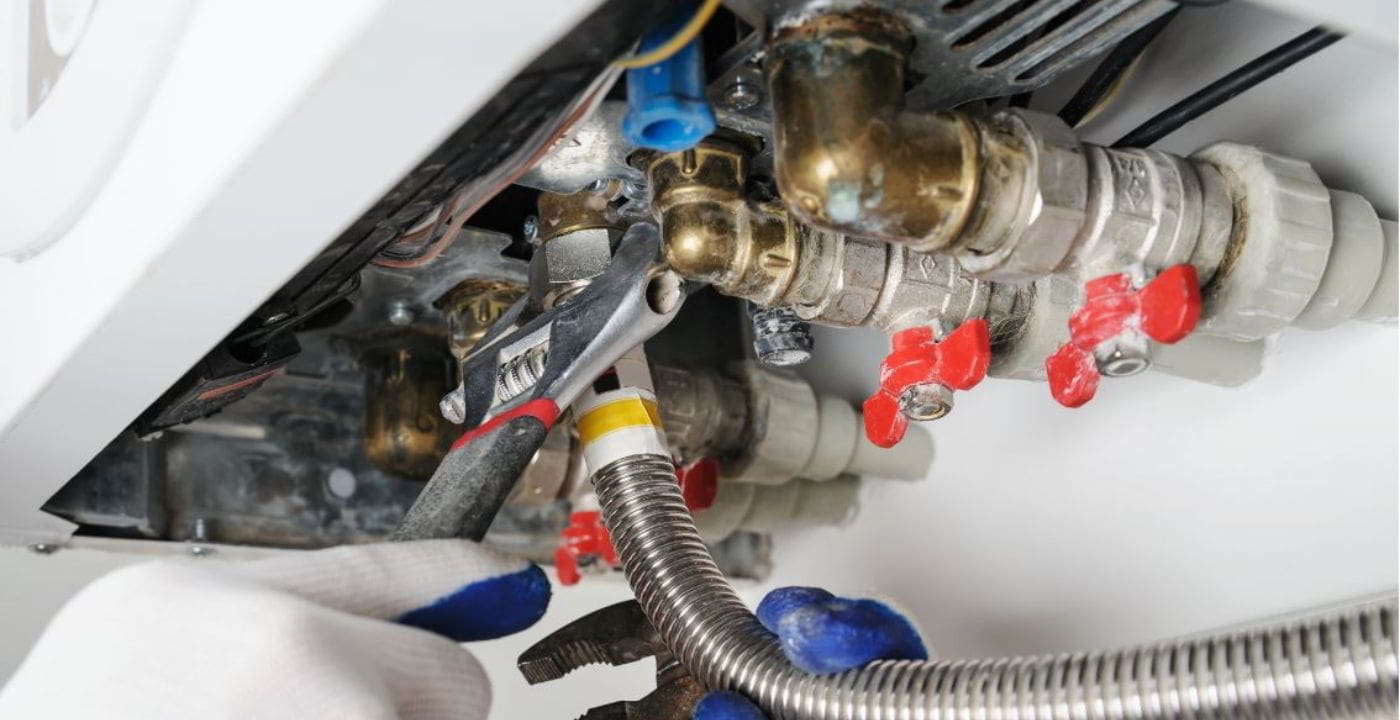
Diverter valves play a pivotal role in directing hot water to either your radiators or taps, while mixer valves control the blend of hot and cold water. Faulty valves can lead to inconsistent water temperature.
Here’s the steps to take to fix the issue:
Identify the Faulty Valve
This may require a professional diagnosis. Mixer valve issues often result in fluctuating tap temperatures, while diverter valve problems might cause the heating to stay on when only hot water is required, or vice versa.
Purchase the Right Replacement
It’s crucial to buy a replacement valve that matches your boiler’s specifications. Always refer to the boiler’s manual or consult with a professional.
Turn off the Boiler
Always ensure the boiler is turned off and cooled before any replacements.
Seek Professional Help
Given the technical nature of this task, we would advise getting a qualified boiler technician to replace the valves as they will ensure the job is done correctly and safely.
Clearing Blocked Heat Exchangers
Another common issue causing combi boiler hot water to go cold is a blocked heat exchanger. Over time, limescale and other debris can accumulate, leading to blockages.
Clearing a blocked heat exchanger involves:
Diagnosing the Problem
A common sign of a blocked exchanger is the boiler overheating or shutting down soon after it starts.
Using a Descaling Solution
Descaling agents can help break down limescale build-ups. It’s always recommended to refer to your boiler’s manual or consult a professional before using any chemicals.
Seeking Professional Maintenance
If descaling doesn’t solve the issue or if you’re unsure about the process, call in a technician. They can either clean or replace the heat exchanger, ensuring your boiler runs efficiently.
Tips to Avoid Combi Boiler Hot Water Going Cold
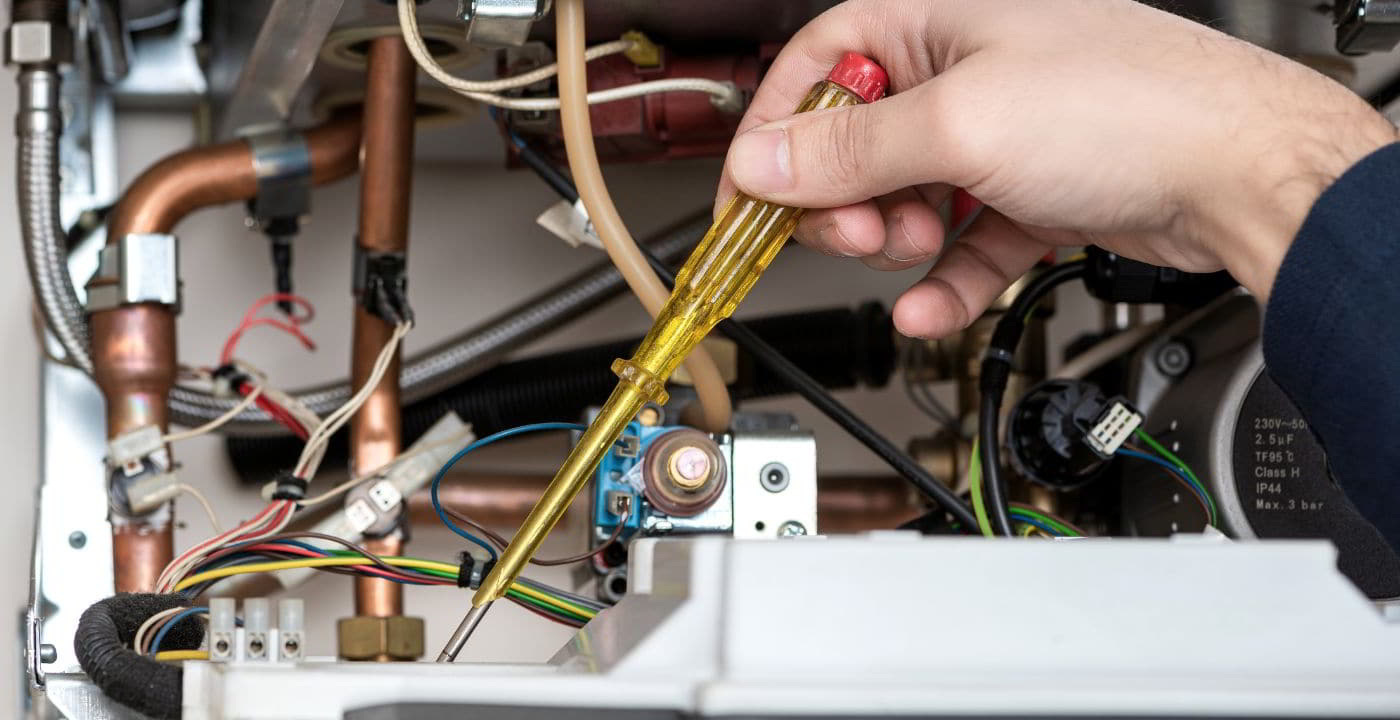
Regular Maintenance
Routine servicing is paramount for the health of your boiler. Professional check-ups can detect budding issues before they escalate, ensuring that your combi boiler operates efficiently and reliably for years.
Optimal Pressure Levels
Your boiler’s pressure is a vital indicator of its overall health. Establish a routine to regularly inspect the pressure gauge. If it consistently falls below or exceeds the recommended range, it may be signalling an underlying issue. Addressing pressure imbalances promptly can prevent more severe problems down the line.
Use Quality Replacement Parts
When it comes to boiler health, cutting corners can lead to more significant costs in the long run. Always prioritise genuine, high-quality replacement parts over cheaper, generic alternatives. These parts are more likely to align perfectly with your boiler’s specifications and are typically more durable and efficient.
Insulate External Pipes
Cold weather can freeze the external condensate pipes of your combi boiler, leading to blockages or even complete boiler shutdown. Insulating these pipes, especially during winter, can prevent freezing, ensuring uninterrupted hot water supply.
Water Softeners for Hard Water Areas
In areas with hard water, limescale buildup can be a significant issue. Limescale can accumulate in your boiler, leading to inefficiencies and blockages. Installing a water softener can counteract this, preventing limescale buildup and prolonging the life of your combi boiler.
Avoid Overloading Your System
Constantly pushing your boiler to its limit by using multiple hot water outlets simultaneously can strain the system. Try to stagger your hot water usage when possible, such as not running a bath while someone else is showering.
Upgrade Ageing Systems
If your combi boiler is over 10 years old, it may be less efficient than the newer models available today. Consider upgrading to a modern system, which can offer better efficiency, more consistent performance, and advanced features that can help in preventing hot water issues.
Educate All Users
Make sure everyone in your household understands the basics of boiler operation and the signs of potential issues. Simple practices, like not adjusting the thermostat frequently or ensuring that vents and radiators are unobstructed, can go a long way in maintaining consistent hot water.
Are All Combi Boiler Brands the Same?

Different combi boiler brands have unique features and performance levels. If you face issues with your boiler, manufacturer forums and helplines can be handy for brand-specific troubleshooting.
Let’s explore some leading brands:
Vaillant
Vaillant boilers are esteemed for their efficiency and longevity. While they may exhibit the typical combi boiler hot water goes cold dilemma, their make-up ensures relatively easy troubleshooting.
Worcester Bosch
Worcester Bosch is another leading brand. Its boilers are designed for resilience, though some users have highlighted occasional water temperature inconsistencies.
Glow Worm
Glow Worm boilers are lauded for their affordability. Like all boilers, they can exhibit temperature fluctuations, but they are generally reliable.
Ideal
Ideal combi boilers, while efficient, have had some reports of water temperature issues on occasion, however, the brand offers robust customer support to address such concerns.
Frequently Asked Questions (FAQs)
Why does my shower go cold after a few minutes with my combi boiler?
It could be due to an undersized boiler, issues with diverter valves, or even external influences like multiple appliances drawing hot water simultaneously.
Are there any long-term damages if the combi boiler hot water temperature fluctuates often?
Frequent temperature fluctuations can stress boiler components, leading to premature wear and tear. It’s advisable to address the root cause promptly to avoid long-term malfunction.
Can external factors, like cold weather, cause my combi boiler hot water to go cold?
Yes, especially if your external condensate pipe isn’t insulated. The pipe can freeze, causing boiler lockouts and, subsequently, cold water.
My combi boiler hot water goes cold then hot again. Why?
This phenomenon can result from several factors. A malfunctioning thermostat can cause intermittent heating, while blockages from limescale or sludge might disrupt consistent water flow and temperature. Faulty diverter or mixer valves can also lead to alternating water temperatures. It’s essential to diagnose the specific cause and address it to ensure consistent hot water.
Conclusion
Experiencing the issue where your combi boiler hot water goes cold can be both frustrating and discomforting. While there are multiple causes, from pressure drops to the consistent shower going hot and cold combi boiler phenomenon, solutions are readily available. Regular maintenance, prompt attention to anomalies, and investing in quality components ensure your boiler operates efficiently. With the right information and action, you can enjoy a consistent hot water supply, free from undesired fluctuations.
Find your perfect boiler match, check out our range of boilers here.
This blog was written in collaboration with Eddie Scoffin, the founder of Boiler Choice. Eddie has been installing boilers for over a decade. With a passion for excellence and customer satisfaction, Eddie’s leadership and expertise have been instrumental in the success of Boiler Choice. His commitment to making the boiler installation process hassle-free for customers has earned him a respected reputation in the industry.
Updated on September 25, 2023


